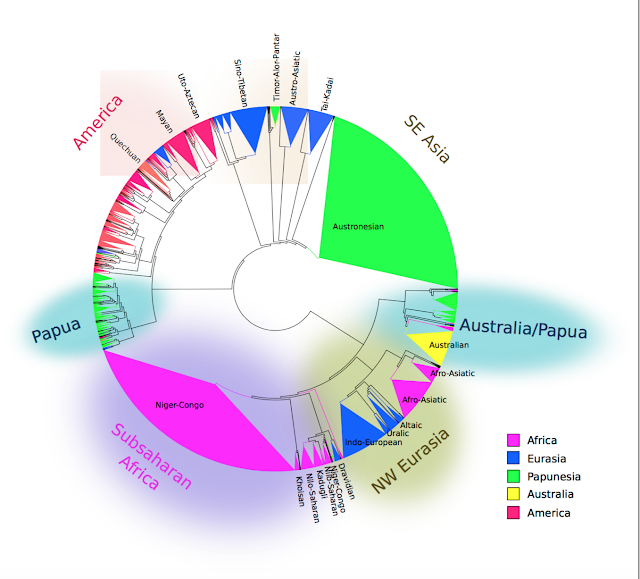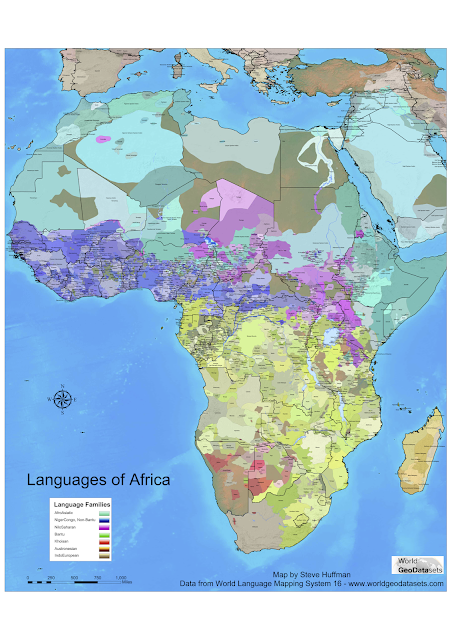Linguistic relativism short
Today I'd like to share with you a short
excerpt from an abstract of a talk by Asifa Majid that I just found very
well put.
Some believe that language
is a direct window onto concepts: Having a word ‘‘bird’’, ‘‘table’’ or
‘‘sour’’ presupposes the corresponding underlying concept, BIRD,
TABLE, SOUR. Others disagree. Words are thought to be uninformative,
or worse, misleading about our underlying conceptual representations;
after all, our mental worlds are full of ideas that we
struggle to express in language. How could this be so, argue sceptics,
if language were a direct window on our inner life?
from Majid, A. (2012). Taste in twenty cultures [Abstract]. Abstracts from the XXIth Congress of European Chemoreception Research Organization, ECRO-2011. Publ. in Chemical Senses, 37(3), A10. (free PDF here)
Also, I'd like to share an old sketch of mine where I tried to illustrate langue and parole in conversation. Please don't take it as underlying concepts = langue, that's not it at all. There should be at least arrows pointing at underlying concepts, langue and shared knowledge/expectations in this illustration. I will make new ones, they will get messier the more I try to cram our ideas about the mind and language into them, but I think that would be rather pleasing and illustrative.
If you're curious about this topic, I' also like to recommend these articles:
Levinson, S. C., & Majid, A. (2009). The role of language in mind. In S. Nolen-Hoeksema, B. Fredrickson, G. Loftus, & W. Wagenaar (Eds.), Atkinson and Hilgard's introduction to psychology (15th ed., pp. 352). London: Cengage learning. (free PDF here)
Majid, A., & Levinson, S. C. (2011). The senses in language and culture. The Senses & Society, 6(1), 5-18 (free PDF here)




Comments
Post a Comment